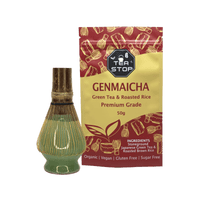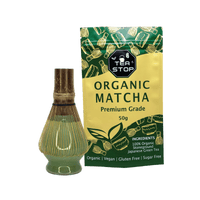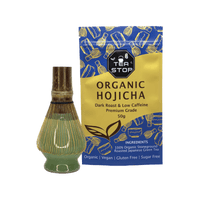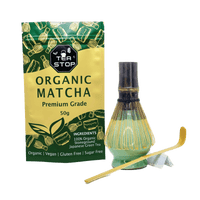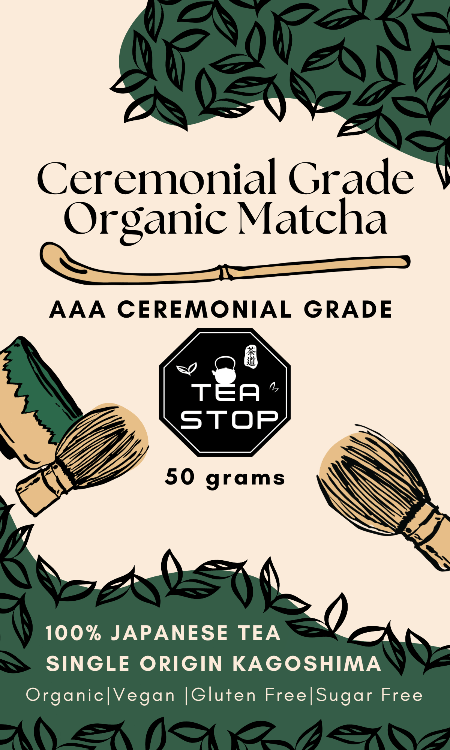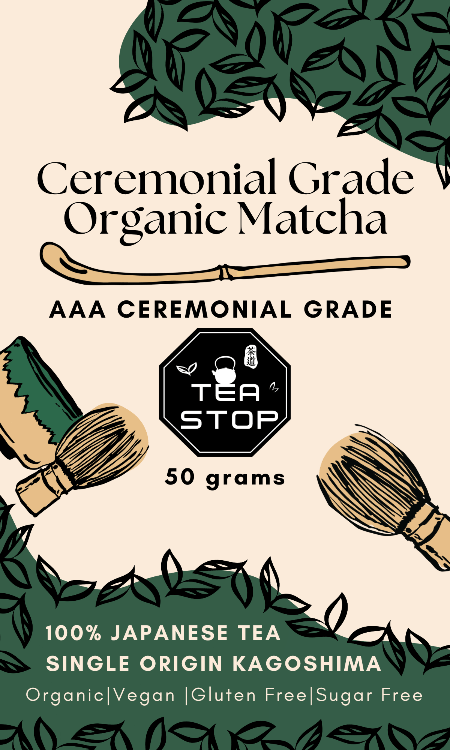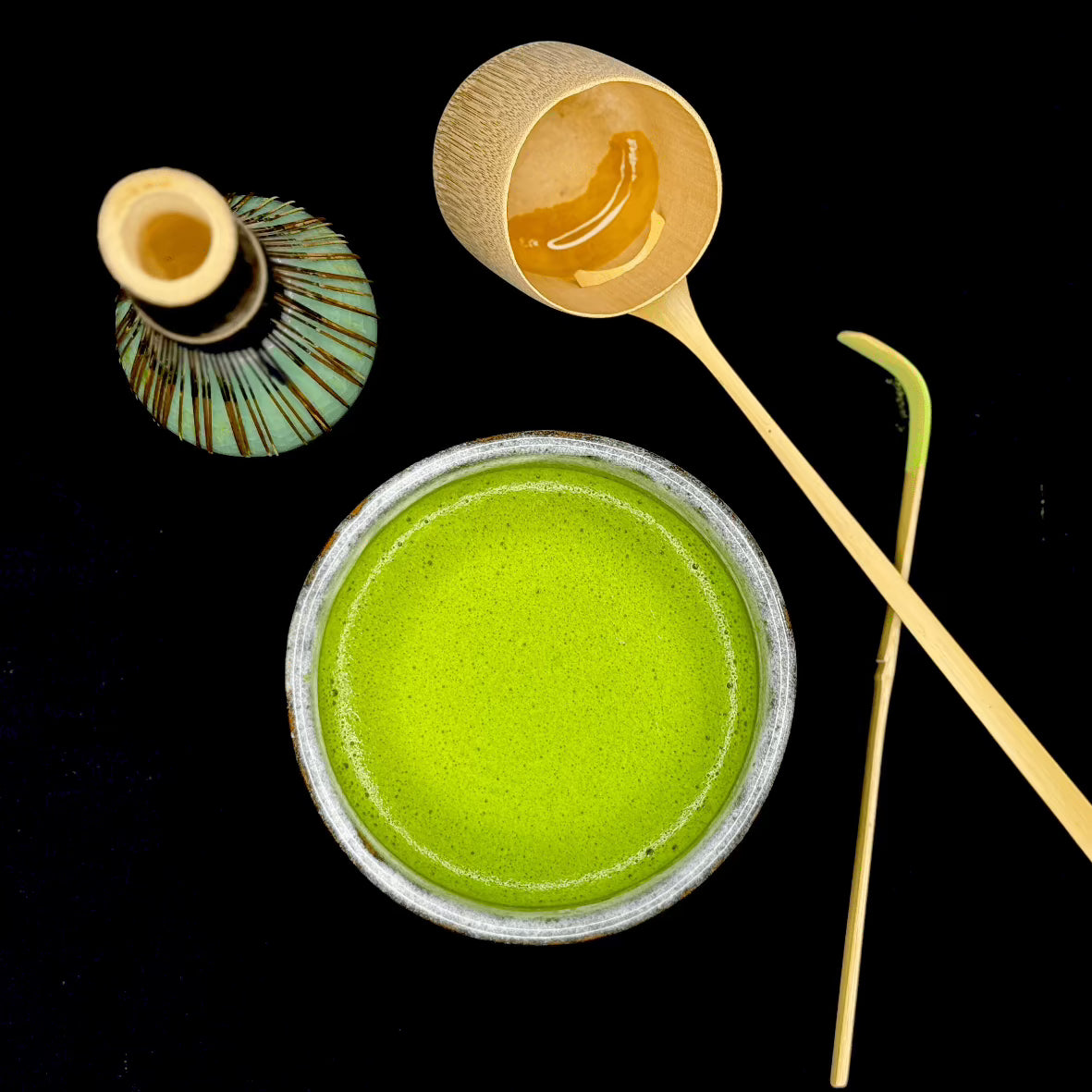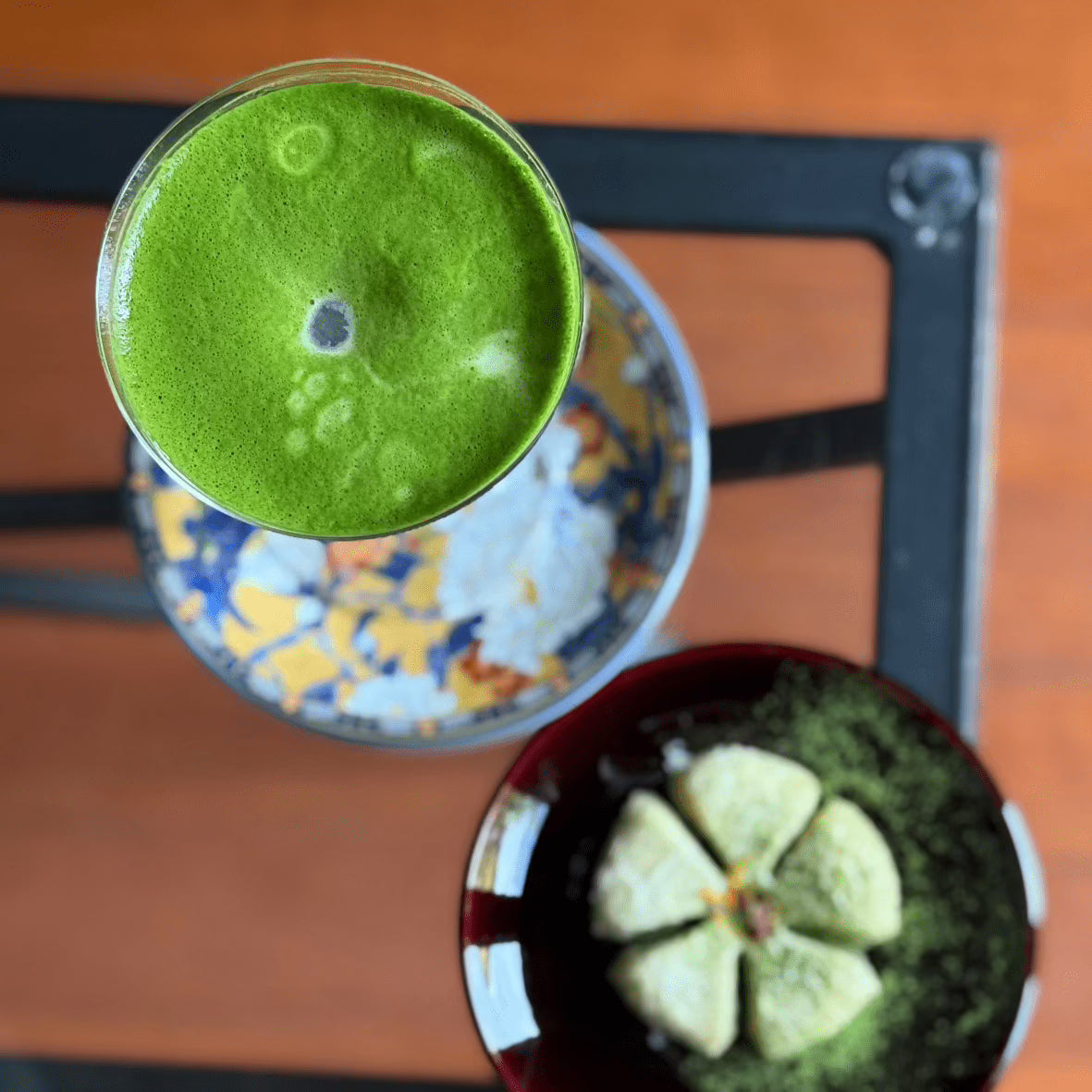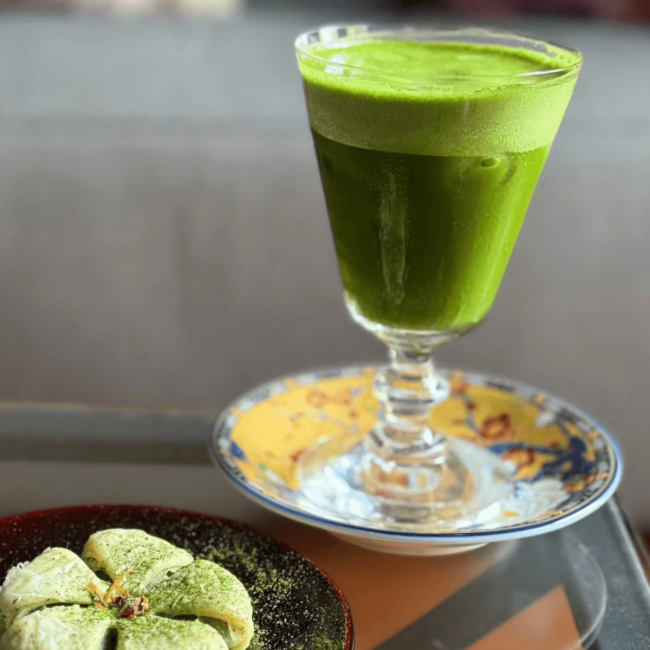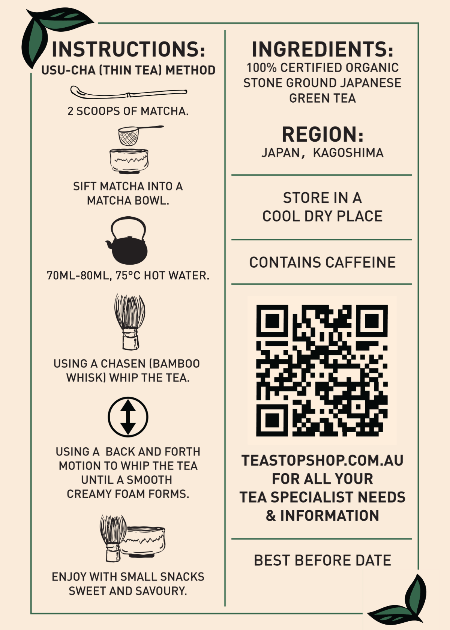
Rooibos Tea Antioxidants: Can They Really Stun the World?
Share
Rooibos tea, derived from the Aspalathus linearis plant native to South Africa’s Cederberg mountains, is more than just a warm, soothing beverage—it’s a nutritional powerhouse. Known for its caffeine-free, naturally sweet flavour, and unique antioxidants, rooibos has become a favourite among health-conscious drinkers worldwide, particularly in Australia, where caffeine-free drinks and wellness-focused lifestyles are thriving.
Rooibos contains powerful compounds like aspalathin and quercetin, setting it apart from other herbal teas and capturing the attention of researchers and tea lovers alike.
Understanding Rooibos Tea and Its Antioxidants

Rooibos tea is made from the leaves of the Aspalathus linearis shrub, which only grows in the Cederberg region of South Africa's Western Cape. The unique soil and climate conditions in this area make it the ideal place for this extraordinary plant to thrive. The shrub grows in mountainous areas at heights between 450 and 900 meters, and it produces long, thin leaves that are used to make the distinctive red-brown tea we know as rooibos.
The Power of Antioxidants in Rooibos
The real strength of rooibos lies in its antioxidant compounds. There are two main antioxidants that stand out: aspalathin, a rare compound found almost exclusively in rooibos, and quercetin, a flavonoid also found in foods like apples and onions. Aspalathin is the most abundant polyphenol in unfermented (green) rooibos, while traditional fermented rooibos has lower levels due to oxidation during processing.
These antioxidant compounds in rooibos have an important role to play in our bodies. They work by donating electrons to unstable molecules known as free radicals. Free radicals are formed naturally during metabolism and can also come from environmental factors such as pollution and UV radiation. If left unchecked, free radicals can cause damage to our cells through a process called oxidative stress—similar to rusting from within, which speeds up aging and the development of diseases.
How Rooibos Antioxidants Support Cellular Health
In addition to its antioxidant properties, quercetin also has anti-inflammatory effects and can help stabilise cell membranes. When combined with aspalathin, these compounds create a powerful defence system that helps maintain balance within our cells and supports our body's natural protective mechanisms.
Health Benefits of Rooibos Antioxidants
Here’s how rooibos tea benefits your overall well-being:
1. Protecting Against Cellular Damage
When you drink rooibos tea, its antioxidants such as aspalathin and quercetin go to work in your body. They donate electrons to unstable free radicals, effectively neutralising them before they can harm your cells' DNA, proteins, and lipid membranes. This process helps reduce oxidative stress and prevent cellular damage.
2. Reducing Chronic Disease Risk
Prolonged oxidative stress is associated with an increased risk of chronic diseases, including conditions that develop slowly over the years. By regularly consuming antioxidant-rich beverages like rooibos, you may be able to mitigate this risk and promote better overall health.
3. Supporting Heart Health
The antioxidants found in rooibos tea have been shown to help prevent the oxidation of LDL cholesterol—a key factor in the formation of arterial plaque and progression of heart disease. By supporting cardiovascular health, rooibos may contribute to a lower risk of heart-related issues.
4. Promoting Metabolic Health
Rooibos antioxidants appear to have a positive effect on insulin response and glucose metabolism in the body. This means that incorporating rooibos into your diet could potentially create conditions that reduce the risk of developing diabetes.
5. Combating Inflammation
Chronic inflammation is another pathway through which various illnesses can develop. The anti-inflammatory properties of rooibos antioxidants work alongside their ability to scavenge free radicals, addressing this underlying factor and promoting better health outcomes.
What sets rooibos apart is its gentle approach to wellness. Instead of relying on concentrated synthetic compounds that may disrupt our body's natural processes, rooibos supports our existing defence systems in a cumulative manner—gradually enhancing our overall well-being over time.
Rooibos Tea's Role in Blood Sugar Regulation and Diabetes Management
The antidiabetic effects of rooibos tea have captured the attention of researchers exploring natural approaches to metabolic health. Studies examining the relationship between rooibos consumption and glucose metabolism reveal promising mechanisms at work within the body.
How Rooibos Tea Affects Blood Sugar
Aspalathin, the unique flavonoid found predominantly in rooibos, appears to influence how cells respond to insulin and process glucose. Laboratory research demonstrates that this compound may enhance glucose uptake in muscle tissue while simultaneously reducing glucose production in the liver—two critical factors in maintaining stable blood sugar levels throughout the day.
Potential Benefits of Rooibos Tea for Blood Sugar Control
Blood sugar control benefits extend beyond simple glucose management. Research indicates that rooibos consumption may help:
- Reduce insulin resistance in peripheral tissues
- Decrease inflammatory markers associated with diabetic complications
- Protect pancreatic beta cells responsible for insulin production
- Lower the formation of advanced glycation end products (AGEs) that contribute to diabetic tissue damage
Evidence from Animal Studies
Animal studies have shown that regular rooibos intake can reduce fasting glucose levels and improve glucose tolerance during metabolic challenges. While human clinical trials remain limited in scope and duration, preliminary findings suggest that incorporating rooibos into a balanced diet may support healthy glucose metabolism, particularly when combined with mindful eating practices and regular physical activity.
Rooibos Tea as a Caffeine-Free Option for Diabetes Management
The absence of caffeine makes rooibos an especially suitable choice for individuals managing diabetes who need to monitor their stimulant intake carefully.
Rooibos Tea and Liver Health Support
The liver is the body's main organ for detoxification, constantly filtering out toxins and processing nutrients. The unique antioxidants in rooibos tea seem to provide significant support for this crucial organ's protective functions.
How Rooibos Tea May Benefit Liver Health
Research on liver antioxidant status has shown promising connections between drinking rooibos tea and the liver's defence systems. The tea's natural compounds, especially aspalathin and quercetin, have shown potential in boosting the liver's own antioxidant enzymes. These enzymes, such as glutathione peroxidase and superoxide dismutase, play a vital role in neutralising harmful oxidative substances before they can harm liver cells.
Here are some ways rooibos tea may benefit liver health:
- Enhancing Antioxidant Defence: Studies suggest that regular consumption of rooibos tea may help maintain optimal levels of glutathione in liver tissue. Glutathione is known as the body's master antioxidant, and having sufficient amounts of it is crucial for protecting liver cells from oxidative damage caused by environmental toxins, medications, and metabolic byproducts.
- Reducing Inflammation: The anti-inflammatory properties of rooibos antioxidants also contribute to liver health by lowering inflammatory markers that can lead to chronic stress on the liver. This dual action—boosting antioxidant capacity while simultaneously reducing inflammation—creates a supportive environment for proper liver function.
Precautions for Rooibos Tea Consumption
While most people can safely enjoy rooibos tea, those with existing liver conditions should be cautious when introducing any new supplement or herbal tea into their wellness routine. It's always best to consult with a healthcare provider before making such changes.
Bioavailability and Absorption of Rooibos Antioxidants
Understanding how Rooibos Tea Antioxidants enter and circulate through the body helps explain their real-world effectiveness. The bioavailability of aspalathin—the signature flavonoid unique to rooibos—presents an interesting profile compared to other tea polyphenols.
How Rooibos Antioxidants Are Absorbed
After drinking rooibos tea, aspalathin and other flavonoids undergo absorption primarily in the small intestine. Research tracking these compounds reveals they appear in measurable concentrations in both plasma and urine, confirming the body does absorb them. The catch? The amounts detected remain relatively modest.
Factors That Affect Absorption Rates
Several factors influence absorption rates:
- Gut microbiota composition affects how flavonoids are metabolised before absorption
- Individual digestive health creates variation between people
- Preparation method impacts the concentration of extractable compounds
- Presence of food can either enhance or inhibit uptake
How Much Aspalathin Is Actually Absorbed?
Studies measuring plasma levels show peak concentrations occurring within one to two hours after consumption, with aspalathin reaching approximately 1-2 micromoles per litre. While these numbers might seem small, they're sufficient to trigger biological activity at the cellular level.
Scientific Evidence and Limitations Regarding Rooibos Antioxidants
Research on rooibos tea's antioxidant effects shows both potential and shortcomings. Clinical trials have found that drinking rooibos can increase the body's antioxidant levels within a few hours. However, studies on people who regularly consume rooibos indicate that these effects are temporary and only last a short time.
Key findings from human studies:
- Short-term increases in antioxidants have been consistently observed in multiple trials
- Improving lipid profiles requires regular consumption over several weeks
- Blood pressure reductions show modest but statistically significant changes
- Anti-inflammatory markers vary in response among individuals
The scientific community acknowledges significant limitations in current research. Most studies involve small sample sizes, ranging from 15 to 40 participants. Trial durations rarely extend beyond six weeks, leaving long-term effects largely unexplored. The majority of compelling data comes from animal models and in vitro studies, which don't always translate to human physiology.
Researchers have identified the need for large-scale, long-duration clinical trials on rooibos to establish definitive health claims. The mechanisms behind cardiovascular and metabolic benefits remain partially understood, requiring deeper investigation into how rooibos compounds interact with human cellular pathways. Despite these limitations, existing evidence suggests rooibos offers genuine antioxidant activity worth exploring as part of a balanced wellness approach.
Rooibos Antioxidants Market and Popularity in Australia
The Rooibos Tea Benefits in Australian market has expanded rapidly thanks to rising wellness trends. Australians are increasingly embracing organic rooibos tea as a delicious, sustainable, and caffeine-free drink alternative.
Growing Demand for Rooibos Antioxidants
The demand for rooibos antioxidants in Australia has been growing due to several factors:
- Health Consciousness: More Australians are becoming aware of the health benefits associated with antioxidants and are actively seeking out products that promote overall well-being.
- Caffeine Alternatives: With many people looking to reduce their caffeine intake, rooibos offers a delicious and naturally caffeine-free option that can be enjoyed at any time of day.
- Functional Beverages Trend: The rise of functional beverages—drinks that offer specific health benefits—has led to an increased interest in products like rooibos, which is known for its antioxidant properties.
Availability and Accessibility
Specialty tea retailers across major cities now stock diverse rooibos varieties, from traditional red rooibos to green rooibos with higher antioxidant concentrations. Online platforms have amplified accessibility, allowing consumers in regional areas to explore premium organic options—such as Rooibos Chai sourced directly from South African estates
Practical Tips for Incorporating Rooibos Tea into Your Daily Routine
Making the most of Rooibos Tea Antioxidants begins with proper preparation. The way you brew your cup directly influences how many beneficial compounds make it into your body.

How to Brew Rooibos Tea for Maximum Benefits:
- Water temperature: Bring fresh water to a full boil (100°C). Unlike delicate green teas, rooibos thrives with hotter water, which helps extract its full spectrum of antioxidants.
- Steeping duration: Allow your rooibos to steep for 5-10 minutes. Longer steeping times release more aspalathin and quercetin without creating bitterness—a unique advantage of this naturally sweet tea.
- Tea quantity: Use approximately 1-2 teaspoons of loose leaf rooibos per cup, or one tea bag for standard servings.
- Multiple infusions: Rooibos leaves can be steeped 2-3 times while still maintaining antioxidant benefits and flavour depth.
Consider enjoying rooibos at different times throughout your day—as a morning ritual without the caffeine jitters, an afternoon pause for reflection, or a calming evening wind-down that won't interfere with sleep.
A Warm Note to End On
Rooibos tea is more than just a drink; it's a blend of age-old traditions and modern-day potential. Originating from South Africa and now enjoyed globally, this caffeine-free tea offers a soothing yet impactful way to bolster your body's defences.
Its distinctive components—especially aspalathin and quercetin—highlight the advantages of rooibos antioxidants, which include:
- Supporting heart health
- Regulating blood sugar levels
- Protecting cells from damage
- Promote gut balance and restful sleep
Whether you’re looking for rooibos tea for gut health, a caffeine-free drink in Australia, or a mindful addition to your nightly routine, rooibos offers a naturally restorative experience.
Brew a cup, take a breath, and let this golden infusion remind you that true wellness often begins with something as simple as what’s in your teacup.
FAQs (Frequently Asked Questions)
What are the key antioxidants found in Rooibos tea that contribute to its health benefits?
Rooibos tea contains unique antioxidants such as aspalathin and quercetin, which play a significant role in protecting against cellular damage, reducing inflammation, and supporting heart and metabolic health.
How do Rooibos tea antioxidants support blood sugar regulation and diabetes management?
Aspalathin, a distinctive flavonoid in Rooibos tea, has been shown to have antidiabetic effects by improving insulin sensitivity and aiding in blood sugar control, making Rooibos a beneficial caffeine-free option for diabetes management.
What factors affect the absorption and bioavailability of Rooibos tea antioxidants in the body?
The absorption of Rooibos antioxidants like aspalathin is influenced by factors such as gut microbiota composition, individual metabolism, and the presence of other dietary components, which determine how effectively these compounds circulate and exert their effects.
Where can I purchase Rooibos tea antioxidants in Australia, and how can I include them in my daily routine?
Rooibos tea antioxidants are widely available through specialty tea retailers across major Australian cities. Incorporating Rooibos tea into your daily routine can be as simple as brewing a cup of this caffeine-free tea regularly to enjoy its antioxidant benefits.

